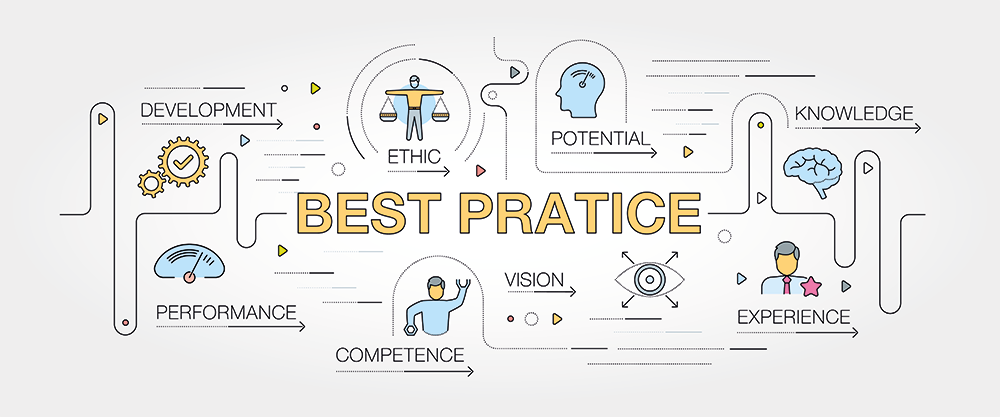Digitalization means the emergence of new business models. Uber displaces taxi companies by providing mobility services without owning vehicles. AirBnb offers private apartments for rent, thus competing with traditional hotels. Each industry and organization must ask itself whether its value proposition is still intact, or if new entrants using innovative technology can create better, faster and less expensive client offerings and push classical players out of the market.
The legal industry is a prime example of this digital transformation. For decades, the provisioning of legal services appeared to be immune to change. Now, LegalTech companies and Legal Process Outsourcers (LPO) are disrupting the market by using artificial intelligence (AI) and machine learning to deconstruct the value chain and automate high-volume administrative activities such as contracting, due diligence and claims assessment. Legal in-house departments of large enterprises today are in a similar situation as HR and IT departments some 20 year ago: they are expected to become more client-friendly and ‘do more with less.’ – As co-editor of the Liquid Legal book (Springer 2017) and co-founder of the Liquid Legal Institute, which counts law firms as well as accounting and consulting companies among its members, I accompany this digital transformation of the legal industry.
Yet digitalization affects all industries. Banks and insurance companies are investing in cryptocurrencies to prepare for the future. Supply chain and logistic enterprises use Blockchain technology to create immutable transaction records and ensure regulatory compliance across large and diverse supplier networks. Industrial production is merging with IT- and communication technology to create Industry 4.0, using the Internet of Things to network physical devices and collect data for faster production and customized user offerings. – In the life sciences industry, online services and social media apps complement traditional therapies. I am part of the leadership team of the US start-up “enlyte” which offers a work-life-balance app to help alleviate stress and support addiction recovery anytime, anywhere.
Digitalization projects usually include four dimensions: people, content, processes, and technology.
-
Because user experience and adoption are crucial, employees must be motivated to accepts and drive the technological change. Digitalization does not replace people – it elevates and enables them for higher-value activities. Increasing employee engagement requires leadership skills in addition to mere managerial skills.
-
Data is the new oil, and the business content that is being generated as a part of daily operations should thus be treated as digital assets: modularized, taggable and searchable.
-
Business processes need to become more easily adjustable than before, reflecting specific market, organizational and even departmental requirements: 1 process standard, n process variants.
-
Finally, integrated, seamless and ubiquitous technologies are the means to make enterprises more intelligent. What separates digitalization projects from mere IT projects is agility – the speed with which business is improved by software solutions. The previously isolated and time-consuming project phases of analysis, design, coding, testing, implementation and support are now being seamlessly integrated in fast development cycles, resulting in rapid prototypes and continuous improvement based on the steady feedback of diverse user groups.
Business leaders interested in a digitalization strategy often benefit from an experienced outside perspective. For example, a Digitalization Potentiality Assessment (DPA) helps to position a specific situation within a wider context and provides recommendation on how to proceed. – As a digital leadership consultant, I specialize in helping companies capitalize on the value of digitalization, bringing to bear decades of experience in the high-tech and software industry. Digitalization is not the answer to all problems, but its potential for disrupting traditional businesses certainly warrants a closer look at the status quo.
My Services
A little about what I do.
 Projects
Projects
I have managed global programs and projects on various topics, including: New Product Introduktion, Service Portfolio Definition, Field Enablement, Shared Services, Talent Management, Corporate Universities, Organizational Design, Business Process Modelling, Software Implementation and Change Management.
 Workshops
Workshops
I often design and deliver global workshops for corporate clients seeking to align stakeholders, departments, or geographical regions in order to address particular business challenges. The workshop results are documented and include executive recommendations for next steps. I also offer individual and team coaching.
 Talks
Talks
I frequently moderate and speak at in-house and cross-company conferences on a variety of subjects. I also lecture and offer academic seminars at universities and business schools, promoting ideas on Lateral Leadership, Lifelong Learning and Liquid Legal.

Best Practices – Be Watchful!
One reason why consultants are engaged (and may actually be worth the money) is that they work on the same topics for several different clients and, therefore, possess what is usually called best practice expertise (“practice” spelled with a “c” in the middle).

3 Theses on Leadership
Leadership is the core topic of my first book publication, entitled: “Leading When You Are Not the Boss – How To Get Things Done in Complex Corporate Cultures” (Apress, New York 2015).

Liquid Legal – Transforming an Industry
“Liquid Legal – Transforming Legal into a Business Savvy, Information Enabled and Performance Driven Industry” is the title of a new Springer publication (Heidelberg, 2016) which I edited together with Kai Jacob from SAP and Dr. Dierk Schindler from NetApp.
Testimonials
What my clients say.
“Roger’s credo to ‘build organizations on people and not on positions’ is both visionary and timely: In an increasingly complex and unpredictable world, it is the hidden talents of employees that hold the biggest value potential for companies. Raising employee engagement and finding ‘lost giants’ is a crucial task for all business leaders.”
“In our department, we have implemented Roger’s adaptation of ‘situational leadership:’ Every team member is encouraged to create and pursue her own projects and to lead others leveraging her personal talents.”
- Client Statement(Global Legal, Software Industry)“Authentic, experienced, curious and creative – Roger possesses the qualities that executives expect from leadership coaches.”
- Partner Statement(Executive Management, High Tech Industry)